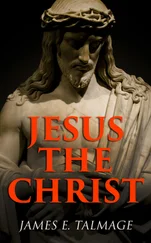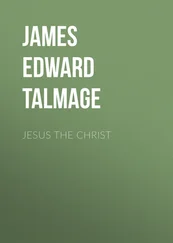1 ...6 7 8 10 11 12 ...25 8.Everywhere in nature is the evidence of cause and effect; on every side is the demonstration of means adapted to end. But such adaptations, says a thoughtful writer, "indicate contrivance for a given purpose, and contrivance is the evidence of intelligence, and intelligence is the attribute of mind, and the intelligent mind that built the stupendous universe is God."59 To admit the existence of a designer in the evidence of design, to say there must be a contriver in a world of intelligent contrivance, to believe in an adapter when man's life is directly dependent upon the most perfect adaptations conceivable, is but to accept self-evident truths. These axioms of nature ought to require no demonstration; the burden of proof as to the non-existence of a God ought to be placed upon him who questions the solemn truth. "Every house is builded by some man, but he that built all things is God." So spake the Apostle of old,60 and plain as is the truth expressed in these simple words, there are among men a few who profess to doubt the evidence of reason, and who deny the Author of their own being. Strange, is it not, that here and there one, who finds in the contrivance exhibited by the ant in building her house, in the architecture of the honey-comb, and in the myriad instances of orderly instinct among the least of living things, a proof of intelligence from which man may learn and be wise, will yet question the operation of intelligence in the creation of worlds and in the constitution of the universe?61
9.Man's inborn consciousness tells him of his own existence; his ordinary powers of observation prove the existence of others of his kind, and of uncounted orders of organized beings; from this he concludes that something must have existed always, for had there been a time of no existence, a period of nothingness, existence could never have begun, for from nothing, nothing can be derived. The eternal existence of something, then, is a fact beyond dispute; and the question requiring answer is, what is that eternal something—that existence which is without beginning and without end? The skeptic may answer, "Nature; matter has always existed, and the universe is but a manifestation of matter organized by forces operating upon it; however, Nature is not God." But matter is neither vital nor active, nor is force intelligent; yet vitality and ceaseless activity are characteristic of created things, and the effects of intelligence are universally present. True, nature is not God; and to mistake the one for the other is to call the edifice the architect, the fabric the designer, the marble the sculptor, and the thing the power that made it. The system of nature is the manifestation of that order which argues a directing intelligence; and that intelligence is of an eternal character, coeval with existence itself. Nature herself is a declaration of a superior Being, whose will and purpose she portrays in all her varied aspects. Beyond and above nature, stands nature's God.
10.While existence is eternal, and therefore to being there never was a beginning, never shall be an end, in a relative sense each stage of organization must have had a beginning, and to every phase of existence as manifested in each of the countless orders and classes of created things, there was a first, as there will be a last; though every ending or consummation in nature is but the beginning of another stage of advancement. Thus, man's ingenuity has invented theories to illustrate, if not to explain, a possible sequence of events by which the earth has been brought from a state of chaos to its present habitable condition; but by those hypotheses, this globe was once a barren ball, on which none of the innumerable forms of life that now tenant it could have existed. The theorist therefore must admit a beginning to earthly life, and such a beginning is explicable only on the assumption of some creative act, or a contribution from outside the earth. If he admit the introduction of life upon the earth from some other and older sphere, he does but extend the limits of his inquiry as to the beginning of vital existence; for to explain the origin of a rose-bush in our own garden by saying that it was transplanted as an offshoot from a rose-tree growing elsewhere, is no answer to the question concerning the origin of roses. Science of necessity assumes a beginning to vital phenomena on this planet, and admits a finite duration of the earth in its current course of progressive change; and in this respect, the earth is a representative of the heavenly bodies in general. The eternity of existence, then, is no more positive as an indication of an eternal Ruler than is the endless sequence of change, each stage of which has both beginning and end. The origination of created things, the beginning of an organized universe, is utterly inexplicable on any assumption of spontaneous change in matter, or of fortuitous and accidental operation of its properties.
11.Human reason, so liable to err in dealing with subjects of lesser import even, may not of itself lead its possessor to a full knowledge of God; yet its exercise will aid him in his search, strengthening and confirming his inherited instinct toward his Maker.62 "The fool hath said in his heart, There is no God."63 In the scriptures, the word fool64 is used to designate a wicked man, one who has forfeited his wisdom by a long course of wrongdoing, bringing darkness over his mind in place of light, and ignorance instead of knowledge. By such a course, the mind becomes depraved and incapable of appreciating the finer arguments in nature. A wilful sinner grows deaf to the voice of reason in holy things, and loses the privilege of communing with his Creator, thus forfeiting the strongest means of attaining a knowledge of God.
12. III. Revelationgives to man his fullest knowledge of God. We are not left wholly to the exercise of fallible reasoning powers, nor to the testimony of others for a knowledge of the Divine Creator; we may know Him for ourselves. Instances of God manifesting Himself to His prophets in olden as in later times are so numerous as to render impossible any detailed consideration here; moreover, we will have opportunity of examining many examples in connection with our study of the ninth of the Articles of Faith; for the present, therefore, brief mention must suffice. We have already noted, as the foundation of many traditions relating to the existence and personality of God, His revelations of Himself to Adam and other ante-diluvian patriarchs; then to Noah, Abraham, Isaac, Jacob, and Moses. An example but briefly mentioned in the Jewish scriptures is that of Enoch, the father of Methuselah; of him we read that he walked with God.65 From the "Writings of Moses" we learn that the Lord manifested Himself with special favor to this chosen seer,66 revealing unto him the course of events until the time of Christ's appointed ministry in the flesh, the plan of salvation through the sacrifice of the Only Begotten, and the scenes that were to follow until the final judgment.
13.Of Moses we read that he received a manifestation from God, who spoke to him from the midst of the burning bush in Mount Horeb, saying: "I am the God of thy father, the God of Abraham, the God of Isaac, and the God of Jacob. And Moses hid his face, for he was afraid to look upon God."67 Unto Moses and assembled Israel God appeared in a cloud, with the terrifying accompaniment of thunders and lightnings, on Sinai: "And the Lord said unto Moses, Thus shalt thou say unto the children of Israel, Ye have seen that I have talked with you from heaven."68 Of a later manifestation we are told:—"Then went up Moses, and Aaron, Nadab, and Abihu, and seventy of the elders of Israel: And they saw the God of Israel: and there was under his feet as it were a paved work of a sapphire stone, and as it were the body of heaven in his clearness."69
Читать дальше












